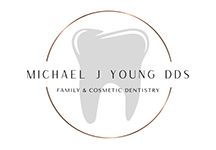One of the biggest advantages of modern dentistry is that more people can preserve their healthy, natural teeth than ever before. Even if the tooth is substantially damaged, a customized restoration (such as a dental crown) can often protect and restore the tooth so that you don’t have to replace it. However, there are still cases in which can become so compromised that even the most advanced restorative treatment can’t adequately fix it. In such cases, your dentist can recommend extracting the tooth so that it can’t cause harm to nearby teeth and oral tissues.
Removing Severely Troublesome Teeth
Reasons Why We Might Suggest Extraction
The thing about tooth extraction is that, while it removes an immediate threat to your oral health, it also leads to the loss of your tooth, which can impact your oral health in other ways. Therefore, your dentist will only recommend tooth extraction when there is no other option for saving it. These circumstances can include:
- Impacted wisdom teeth
- Severe internal tooth decay
- Extensive damage to the tooth’s crown
- A crack or fracture in the tooth’s root
- And more
Because of the loss of your tooth, you may benefit from planning an appropriate tooth replacement option as soon as possible after your tooth extraction procedure.
Extract the Threat to Your Smile
When a tooth can’t be saved, extracting it can make room for your dentist to replace it and fully restore your smile. To learn more, schedule a consultation with us by calling the office of Michael J. Young, DDS, in Lafayette, LA, today at 337-237-6453.
